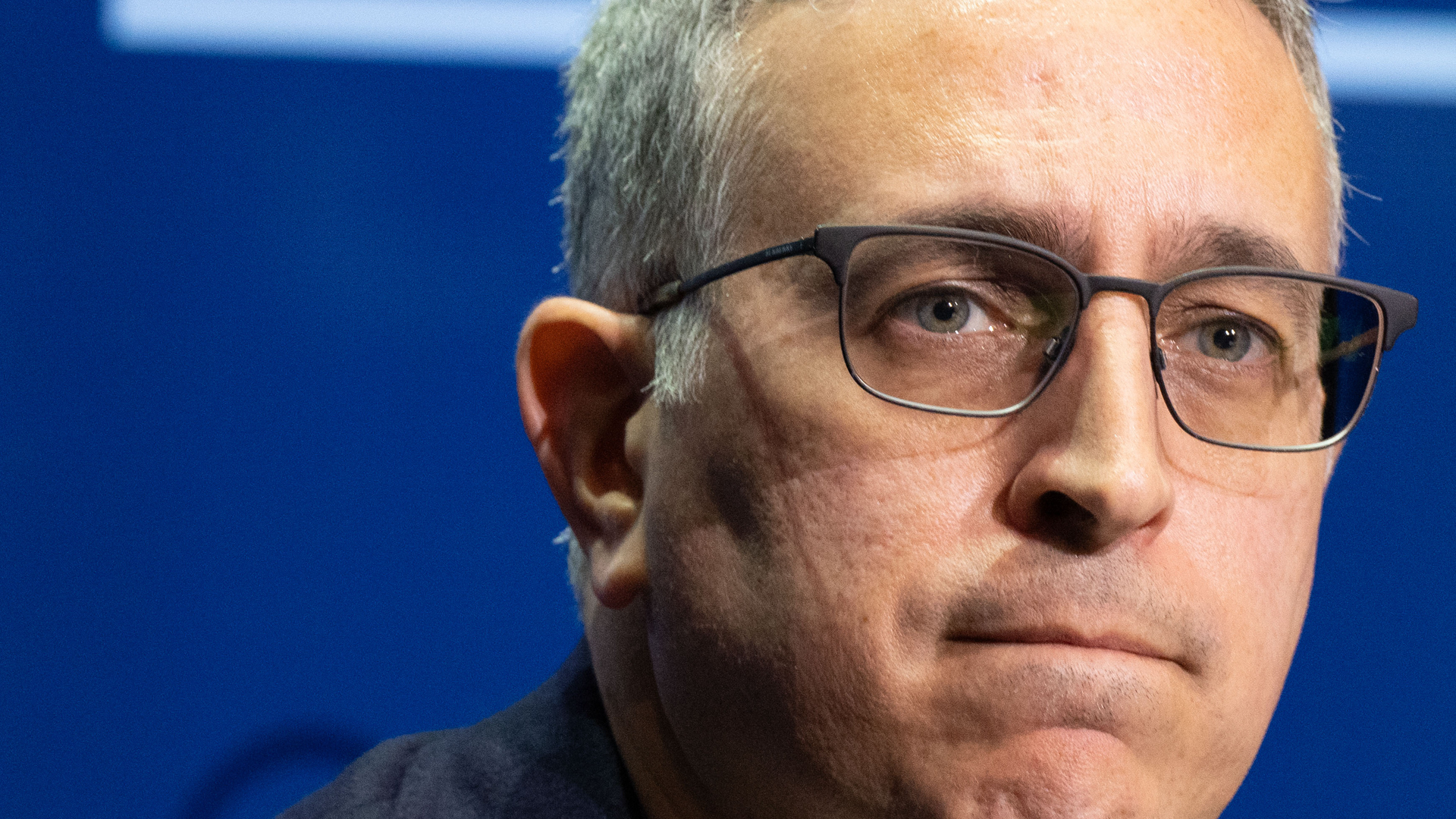
As if with a unified intent, Canadian voters have contrived to install a Parliament that features rewards and punishments for each of the principal political parties. Strategic voting by osmosis has produced a deli- ciously fractured House of Commons with unique checks and balances for all the naughty politicians the public just couldn’t get around to actually liking, or defeating.
Take the Liberals. True, they held on to power (and by a margin greater than predicted by any of the major polling firms) but they were forced to suffer the humiliation of actu- ally contemplating the end of the long and successful run which saw them elected to three majority governments between 1993 and 2004. Nothing gladdens the heart so much as watching the Natural Governing Party stare direct- ly into the face of the demise of its Divine Right franchise to dominate Canadian federal politics. They fussed and they fumed, and huffed and puffed, and resorted to extremely negative advertising (not with the Adscam-sullied agencies, of course) that would have made a carnival barker, a shyster or a snake oil salesman blush with mortification.
As they celebrated their Lazarus-like resurrection from death certain and deserved, they should have been ashamed of themselves for having the skills to effectively terrify large segments of the centrist elements in our country into believ- ing that only the Liberals held dear Canadian values and traditions, and that Stephen Harper and his Conservatives were the barbarians at the gates, clamouring for the chance to tear apart cherished institutions and conventions.
Winning 135 seats was, therefore, bittersweet. It is enough to govern, for a time. It avoids the dreaded move to Stornaway, for a time. But it actually forces the newly elect- ed government to do something so that, in the run-off bal- loting, which will inevitably occur within a year to eighteen months, they are well regarded. Having campaigned on every platitude and homily, they will find Canadians hold- ing their feet to the fire on the big-ticket items they made ”œthe fight of their lives,” particularly the health care system.
Canadians are not in a position to judge whose ”œplan” to reinvigorate medicare with much needed transfusions of cash (and hopefully, some fresh thinking on administration) is best, but this much they know from anecdot- al and personal experience, from the fig- ures collected by Statistics Canada and the medical profession: the emperor is walking around without any clothes.
It is one thing to wrap oneself in the nation’s very identity and pledge to reduce waiting times in five crucial areas through the injection of $4 billion over five years. It is quite another to have any idea that such a program will actually work and produce the promised results. The Supreme Court of Canada is already considering a constitutional challenge to the ensemble of federal and provincial laws and regulations, which we refer to collectively as ”œmedicare,” where the constitutional bright line is this: at some point, care delayed is care denied.
When patients suffer pain, anxi- ety, deterioration of their health, irreversible tissue damage and even death while waiting in the queue that it is positively un-Canadian to jump, they know this is not consistent with their right to security of the per- son, guaranteed by Section 7 of the Charter of Rights and Freedoms. Here is Paul Martin dissing the Conservatives for planning to undermine the Charter while he defends as catechism the puri- ty of the single payer, universal medicare model which itself is, or risks, breaching the same constitutionally guaranteed rights he claims to uphold.
It may be ludicrous that the fact that Martin himself attends a private health care clinic, Medisys, which is listed on the TSX, is considered to be a scandal, except that Martin’s disingenuousness on this question, insisting he was using his health card to visit the founder and operator of the executive clinic, made it so. This is the danger one faces when posing as the protector of the Canada Health Act while spinning myths about how the system actually works.
So, Job One is to fix medicare. The political imperative is easy: The NDP will support any massive injections of public funds into a ”œgood” program like medicare, while taking on faith that the spending will reach the end user and actually benefit patients. The Conservatives may be more critical about the amounts, the timetable and the administrative overburden which eats up funds that would otherwise be available for better care, but will prob- ably agree to any much-needed injection of funds which those permanent mendicants, the provincial premiers, are bullied into accepting.
The real issue is can Martin keep the constitutional wolf from the door by praising our system to the skies while steadfastly refusing to consider any improvements to the way the system is organized. His humiliating wood- shedding of his own health minister, Pierre Pettigrew, who had the temerity to suggest that the Canada Health Act does not prohibit private delivery of diagnosis or treatment within the sin- gle-payer public system (a perfectly true statement) and his demonization of Premier Ralph Klein for saying effective- ly the same thing, indicates that Martin is more comfortable with spinning mythologies than realities.
Our governments choose to deliver medical services to us in the least cost-efficient manner imaginable. Mostly, they are delivered in a vast pile of bricks and mortar called a ”œhospi- tal,” where it costs millions just to open the doors, turn on the lights, heat the place and invite the staff in. The word ”œprivate” has become a dirty word, symbolizing evil consequences, including the dreaded ”œprofit” word, and no credibility is accorded to economies that could be achieved by efficiencies. The mere mention of either word conjures up resources drained from the revered public sys- tem into a two-tier private one, where fat cats are all right, Jack, and everyone else is…well, you know.
This is intellectually dishonest. It may well have won the election, but medicare is a living, breathing thing whose appetite for money has no finite limit, and Martin may well find that he has to bend just a little to bring about much-needed improvements (another word that generates suspicion on the Left) in the delivery mecha- nisms. This is where he can get some support from the Conservatives.
Indeed, with the Conservatives at 99 seats (plus, perhaps, the lone inde- pendent, Chuck Cadman, who should be easy for the Tories to pick up to make an even 100), the Bloc Québécois at 54 and the NDP at 19, the form of this Parliament will not likely be a coalition or even a loose working arrangement between any two parties, but rather a majority based on a case by case, issue by issue, approach where the Liberals turn first to one, then another of the two federalist parties for support as required. This is good, because it frees the Liberals from slavish adherence to socialist principles, and allows them to avoid foreswearing much-wanted poli- cies, like the North American Missile Defence System. They can shop for votes (many of the things on the agen- da don’t even require votes, like the treaty with the Americans to expand Norad to incorporate the missile defence shield, or can be included in a larger measure, such as a budget, for example, increasing federal transfers to the provinces for health care).
So, the NDP will love health care, childcare, and pharmacare. The Bloc will support fixing the fiscal imbalance (and so will the Conservatives), but it will take Conservative support to win any non-confidence vote that the NDP may introduce on missile defence. What can Martin give the Conservatives in return for occasional support, which keeps his government independent of exclusive reliance on the NDP?
Well, for one thing, there is the pri- vatization of the last 18.7 percent of Petro Canada, anathema to the NDP for rea- sons best understood by those who chant mantras. Martin’s government could use the money and the investment has long since outlived its original justification of providing the government with a ”œwin- dow on the industry.” Even bank mergers could fall into the same category, with Martin co-opting the Tories into accept- ing that their time has come (although, again, the specific legislation allowing them has already been passed). The only obstacle here is that some of the Liberals’ own caucus have not chinned them- selves to the desirability and inevitability of financial services consolidation.
What about the Conservatives? If the Liberals have the wit to pull off as full an agenda as suggested above, the Tories will have some difficulty in keeping the public angry at the corrupt, arrogant, long-in-the-tooth Liberals. They couldn’t even keep the tempera- ture up on the sponsorship scandal dur- ing a 37-day election campaign. Moreover, their leader has recently mused publicly about considering his future, totally unnecessarily in view of his excellent performance during the campaign.
Stephen Harper also won and lost in the election. He won the long hoped- for breakthrough in Ontario, but could- n’t crack the red fortress of Toronto and its near environs. He had minority gov- ernment in his grasp until he failed to adequately respond to the vilification in Martin’s desperate assault on social issues. He was cool and prime ministeri- al on TV and on the campaign trail, but needed to show some anger and passion when ridiculous untruths were spun about him and his agenda. He remained on message, but could not get some of his candidates and allies to do the same. He had no chance of a seat in Quebec. He was trapped by the cynical Liberal ploy of a snap election call before he had his hands firmly on the party tiller.
What the Conservatives need to do now is concentrate on extra-parliamen- tary activities: They need to hold a poli- cy convention to fill in the gaps intentionally left in their platform this last go around, precisely because they needed to downplay areas where Conservatives either couldn’t agree or, at least, had not yet agreed to agree. A pol- icy convention would not only create a locus classicus of party orthodoxy, but would be the antidote to accusations of hidden agendas. It would be a way for the leader to suggest to his loose-lipped supporters that they need to get with the program and refrain from improvisation. It would also give the Tories a chance to popularize some of their thinking, to explain, in a forum far more generous to their needs than a leaders’ debate, why Conservative ideas represent a fresh take on many of Canada’s problems that have heretofore been dealt with by nos- trums and commonplaces that don’t actually offer solutions.
If the format for the policy convention were to depart from the classic resolu- tion, debate, vote…resolution, debate, vote style that has characterized all par- ties’ meetings in the past, and be organ- ized as an articulation of the Conservative view, with well-known, eloquent spokespersons leading the discussion on each issue, with a view to proselytizing among those central Canadians who couldn’t overcome fear of change in the recent polling, perhaps they could achieve greater inroads in Ontario with- out having to gravitate from principled Conservatism to the mushy middle. In the last election, Ontario was Dustin Hoff- man’s character in the movie ”œRain Man,” and Stephen Harper threatened their routine. They wanted to watch Judge Wapner at 4 o’clock. They did not want to be told that medicare was not sal- vageable in its present form, that social progress did not have to be achieved at the expense of some of our best, hard- working, law-abiding citizens who held cherished traditional and/or religious beliefs on certain issues, and that Stephen Harper really thinks the Charter of Rights and Freedoms is just fine and has no plans to be unfair to gays, lesbians, women who demand continued access to abortion services, or any other group.
Harper will also have to spend a lot of time on a Quebec strategy. He has some natural raw material: a belief in the fact that the federal government has usurped provincial jurisdiction for decades, and that the paternalistic assumption that premiers can’t be trusted to work for the public good unless the federal watchdog keeps them in line is outmoded, arrogant and unworthy. Quebecers and Albertans will like that. Then he needs to recruit some candidates who know the territory and who are known quan- tities in their communities. He can appoint a Quebec lieutenant. There is no longer any shame in that after Paul Martin named the prodigal separatist Jean Lapierre as his eyes and ears in Quebec, despite Martin representing a Quebec riding himself. Numerous can- didates for that role exist, but the most natural is Michael Fortier, an accom- plished lawyer and investment banker a former candidate for the Progressive Conservative leadership in 1998 and a close adviser of Harper’s.
The Bloc Québécois also won and lost. They won as many seats as when they were led by Lucien Bouchard, but they achieved a ceiling that demonstrates that there is nowhere for them to go. Except perhaps down. The fact that Bernard Landry had to be hushed up, after claiming that such a tide of Bloquistes must mean that there will be another ref- erendum on sovereignty before 2009, means that they can’t afford to have their main raison d’etre underscored. They will defend Quebec’s interests, but their dra- matic success may oblige Quebecers to note their limitations.
It was very useful for the Bloc to exist as a place to park votes when the population wanted to chastise the Liberals, but not quite so badly as to drive them from office (the national mood swung back to the team that brought us HRDC, the gun registry and Guite/Gagliano/Groupe Action as soon as speculation commenced that the Tories could win a majority). It would be useful to restore a federalist alternative to the Liberals in Quebec just as our democracy benefited from the restora- tion of the two-party system in the rest of the country. Even the Liberals should want this, to avoid implications that being angry at the Liberals means Quebecers are turning their backs on Canada. As Stephen Harper said fre- quently during the campaign, you don’t have to be Liberal to be a Canadian.
The NDP received the most excru- ciating torture from the results. They gained five seats, less than they had hoped, and even fewer than early results on election night indicated. Jack Layton proved a vibrant, energetic force and they produced some really good ads. Layton’s snapping puppy routine in the debate annoyed some people, but, by and large, he can be proud of himself. Nevertheless, by the party end- ing up one seat short of holding the bal- ance of power, Canada has been saved from its ideological orthodoxy. Amongst other things, a referendum on proportional representation would have been a condition of continued NDP support for the government.
That is a recipe for con- tinued instability. It is nonsense that votes don’t count in a first-past-the post system. They count all right, within a certain framework of rules that mil- itates in favour of stable, majority governments. The fact that even our existing system can produce a divided house of minorities is okay, but we should not want an elec- toral regime that guarantees perma- nently fractioned Parliaments.
The NDP did its traditional job in the election: it drove the Liberals to the Left (not bad work, considering where Paul Martin was as finance min- ister) and produced a caucus that can support many of the biggest promises the government has committed to. They are a useful conscience for the nation, but if it is true that the Conservatives will never form a gov- ernment until they move closer to where the people are or move the peo- ple to where they are, the NDP has the same task in spades.
Whatever happens, this Parliament will be fun to watch for political junkies, who can already start analyzing the prospects of the parties and leaders in the next election, com- ing soon to this space.







